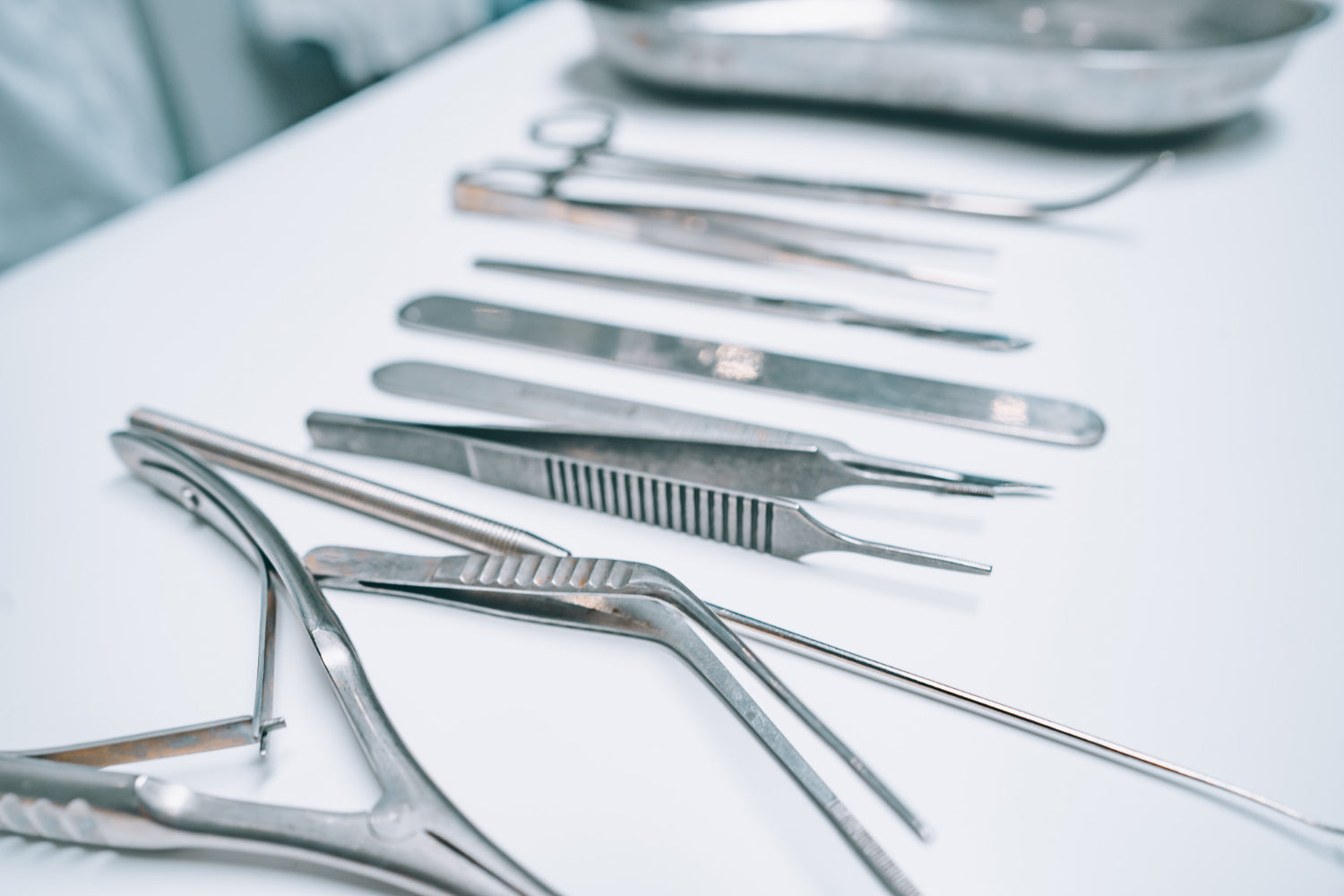

· By Trevor Horne
Veterinary Hand Instruments: What To Do When They Become Dull
In veterinary care, hand instruments are essential tools for delivering precise and efficient treatments. From carrying out delicate surgeries to conducting routine check-ups, these tools play a crucial role in a veterinarian's daily activities. However, like any tool, they require regular maintenance for optimal performance. A common issue that arises over time is the dulling of these instruments, which affects their effectiveness.
Dull instruments can present several challenges, from slowing down procedures to potentially impacting the quality of care provided. This can be particularly troublesome in veterinary settings, as it may lead to longer recovery times or less precise treatments for animals. Understanding proper techniques allows veterinarians to maintain their instruments in top condition, ensuring smooth operations and high standards of care.
Understanding Veterinary Hand Instruments
Veterinary hand instruments vary significantly, depending on the procedures for which they are used. Common tools include scissors, forceps, scalpels, and needle holders, each serving a unique function in surgeries and everyday clinical tasks.
- Scissors: Used for cutting tissues, sutures, or bandages. They come in various shapes and sizes, suitable for specific tasks.
- Forceps: Forceps are essential for gripping and manipulating tissues during surgeries. They help in holding or moving parts gently without causing harm.
- Scalpels: Sharp blades are used for making precise incisions. Different blade shapes suit varying surgical needs.
These instruments are frequently used in daily practice, underscoring the importance of maintaining their sharpness. Sharp instruments facilitate clean cuts and precise movements, which reduces tissue damage and improves healing times. Conversely, dull tools lead to jagged cuts and require more force, increasing the risk of accidents or imprecision. Regular inspections and maintenance, including sharpening, ensure these instruments remain consistently reliable.
Signs That Your Instruments Are Dull
Recognizing when an instrument becomes dull is crucial for maintaining an effective practice. Common signs that your instruments might need attention include:
- Difficulty in cutting or handling: You might notice an increase in effort during procedures, indicating the tools are not as sharp as needed.
- Increased pressure required for tasks: Needing to press harder to cut or grip with forceps often signals dull edges.
- Frayed or uneven tissue cuts: Jagged or frayed incisions or cuts might result from blunt instruments that require sharpening.
Ignoring these signs can negatively affect surgical outcomes, as dull tools may cause more tissue trauma or prolong operations. Monitoring these signals helps determine when it's time to sharpen or replace tools, ensuring animals receive optimal care.
Steps to Take When Instruments Become Dull
Keeping your veterinary hand instruments sharp involves several straightforward steps. Initially, you'll need the appropriate sharpening equipment. Basic tools like sharpening stones, rods, and honing devices are crucial for in-house maintenance. For a more precise edge, professional sharpening services are available.
Here's an effective approach to maintaining instrument sharpness:
1. Assess the Condition: Check each instrument for wear and tear before sharpening, looking for chips, bends, or other damage.
2. Clean Thoroughly: Ensure instruments are clean, as residue can interfere with sharpening.
3. Sharpen with the Right Tools: Use a sharpening stone or rod to carefully sharpen edges, following the manufacturer's guidelines for best results.
4. Test the Sharpness: After sharpening, test tools on soft material to ensure clean cutting.
5. Regular Maintenance: Make sharpening part of regular maintenance, along with proper cleaning and storage.
Professional services often employ advanced techniques and tools, achieving a level of sharpness that may be difficult to replicate in-house. Choosing between professional and in-house sharpening depends on available equipment, staff expertise, and clinic needs.
Why Regular Maintenance Is Important
Maintaining sharp instruments offers benefits beyond improved performance. Regular maintenance extends the tools' lifespan, ultimately reducing costs for the practice. Regularly cared-for instruments require fewer replacements, decreasing expenses over time.
Sharp tools enhance the precision of veterinary procedures, creating clean and precise cuts that minimize tissue damage and expedite recovery for animals. This elevates the overall quality of care, leading to better outcomes. Furthermore, consistent maintenance cultivates an atmosphere of professionalism and confidence among veterinary staff.
Neglecting maintenance can turn tools into sources of frustration, possibly increasing procedure times and creating risks for animals. Acknowledging the value of regular upkeep is vital for enhancing patient care and the efficient operation of veterinary practices.
Ensuring Your Practice Is Equipped with Quality Supplies
Equipping your practice with high-quality veterinary medical supplies is vital for maintaining high standards. Keeping instruments sharp and effective is just one component of a broader strategy to enhance animal care. Regular assessments of existing equipment help determine when upgrades or replacements are necessary.
Investing in high-quality supplies benefits both veterinarians and their patients. Superior instruments serve as a foundation for delivering dependable care, improving both efficiency and satisfaction within the clinic. Monitoring advancements in tools and practices ensures that a clinic remains equipped with the best solutions available.
In conclusion, maintaining sharp veterinary instruments is fundamental to running a successful practice. By implementing routine maintenance procedures and investing in quality supplies, veterinarians can provide enhanced care and enjoy greater workflow efficiency. These efforts not only extend the instruments' lifespan but also significantly contribute to the health and well-being of every animal in your care.
Enhance your veterinary practice by ensuring your tools remain sharp and effective. Explore ProNorth Medical's wide range of high-quality veterinary medical supplies to support your clinic's needs. A well-equipped clinic helps deliver outstanding care, making the difference in patient outcomes. Discover how these top-notch supplies can elevate your practice.
